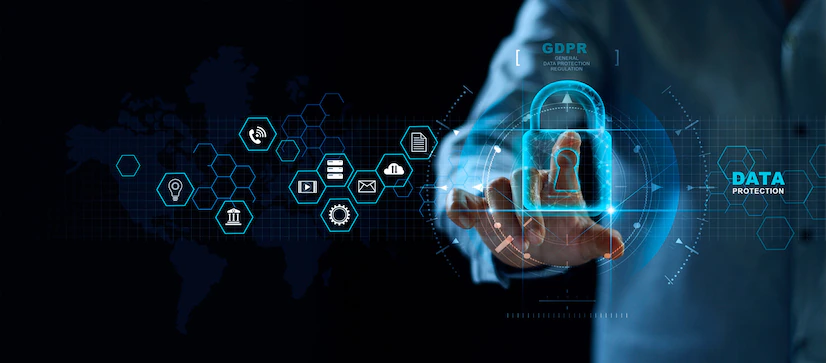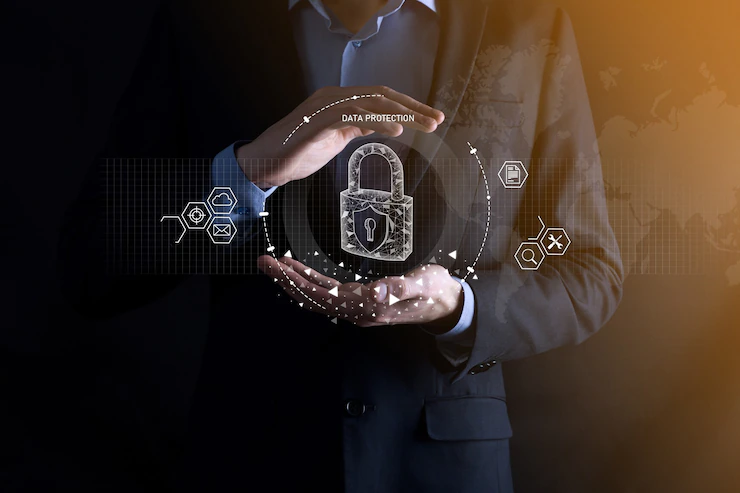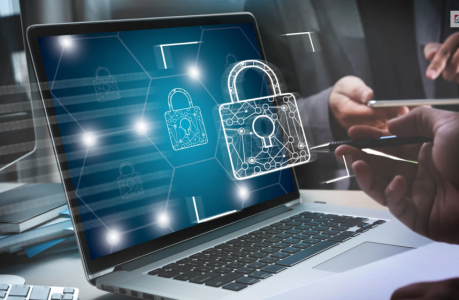7 Best Practices To Prevent Data Theft

Data theft is common in today’s digital world due to data breaches and other cyber threats. Once it happens to your organization, it can cause significant damage to your reputation and overall finances. It’s why knowing the best ways to stop data theft is crucial.
While there’s no foolproof or surefire way to prevent data theft, it’s critical to have a recovery plan and implement measures to minimize the damages of a breach and slow cybercriminals down.
Here Are Seven Best Practices To Prevent Data Theft:

If you don’t know where to get started, you can read the cybersecurity guide from KMTech and keep these best practices in mind to maintain better data security:
1. Train Your Team On Data Security
Whether running a small or big business, training your team regarding data security is essential. Other than external risk factors like viruses, your employees may put your business data at risk.
While you can rely on your antivirus software, educating your team on data security can improve their awareness and broaden their knowledge about its importance to your company.
When conducting data security training, make sure to include topics about data security, common cyber threats today, and data loss prevention tricks. It may also be a good idea to train your employees about the best steps to recover data in case a breach happens.
Effective data security training minimizes risks and prevents possible financial losses and damaged reputations. It also addresses the mistakes most employees make when sending and accessing sensitive data using the internet.
2. Use Secure And Strong Passwords
Cybercriminals can quickly crack passwords, mainly if you’re using weaker ones. Creating a strong password is the key to cyber safety. The primary goal is to create something that hackers can’t easily guess. So, when figuring out your passwords, follow these tips:
3. Use Unique And Complex Passwords
Using spaces, numbers, misspellings, and symbols is essential to make your password complex and unique. However, adding symbols isn’t as helpful as lengthening your password. An 8-character password with numbers and symbols is much easier to guess than a 20-character password with lowercase letters.
To ensure that your password is unique, consider using a password generator. It may add safety as long as it’s from a reliable source.
4. Create A Long Password
Strong passwords can help prevent brute-force attacks from hackers. Such attacks are typically automated systems that will try to get into your company’s security system. For this reason, creating a longer password with at least 12 characters is vital.
You can understand the Step-by-step guide to filing bankruptcy in Georgia. However, luckily loan management software greatly helps with this problem. All papers are kept on remote servers that are properly protected and encrypted. Third parties don’t have any access to them, so they can’t steal critical information.
5. Use Password Managers
Every password you use must be unique from one account to another. Things can be complicated to keep track of everything, especially if you’re using long and complex computer-generated passwords. So, to avoid forgetting your passwords, use a password manager.
Password managers can track all your complicated logins, ensuring better security for every individual login. Aside from keeping your passwords manageable, it may also maximize your information technology (IT) security.
6. Close Unused Accounts
If you have an unused account online, it’s best to close or get rid of it for good. The reason behind it is that online accounts typically contain a combination of your credit card details and personal data, which are all valuable for hackers.
To avoid data theft and protect your online privacy, remove any of your private details from your unused accounts. Instead of leaving them dormant, make sure to close them.
7. Avoid Using Free Wi-Fi
For most people, it’s always a delight to use free Wi-Fi to reduce their monthly data charges. However, they’re not reliable and secure connections.
Hackers often target free Wi-Fi users to steal data. If you don’t want it to happen, avoid using such wireless connections and opt for an encrypted, more secure network connection.
If you still want to use public Wi-Fi, you can stay safe by not sending or opening sensitive data. It’s also a great idea to use a virtual private network (VPN) to make your browsing activities anonymous and hidden from cybercriminals.
Additional Suggestions:
»Limit Your Employee Access
If you have countless employees, it’s critical to restrict access to your company’s major systems and sensitive data. More employees accessing your valuable data can increase the risk of data theft and may present more entry points for cybercriminals.
Limiting access to several employees can make detecting unauthorized access easier and track where the breach happens. If you have more employees with access, you can’t ensure and monitor the proper use of every account that uses sensitive data.
»Encrypt Your Sensitive Data
Other than restricting your employee’s access to sensitive data, you can consider implementing data encryption. It can be an excellent solution to protect your information from being accessed by unauthorized people.
Generally, data encryption works by converting data into another form, which is called ciphertext. It is impossible to interpret, and a decryption key is necessary to access the data.
»Use Antivirus Software
Installing antivirus software on your computer systems is one of the best practices to prevent data theft. However, it’s crucial to keep it updated to remove and detect various kinds of malware, preventing it from penetrating your system and disrupting your network.
When choosing antivirus software, opt for one that’s tailored and designed for your computer systems. Keep in mind that not all antivirus solutions are made equal. So, it’s best to shop around and compare the available options in the market to choose wisely.
If possible, select the antivirus software that’s rich in features and effective in blocking various types of data security threats, such as malware.
Conclusion
As cyber criminals adapt to sophisticated ways to bypass advanced cyber defenses, you should also keep up with the latest cybersecurity trends to prevent data theft effectively.
Remember, even if you have the best defense hardware and software to combat cyber threats, educating yourself and your team about the above practices for data theft can be an effective way to defend your business from hackers.
Read Also:



























Leave A Reply